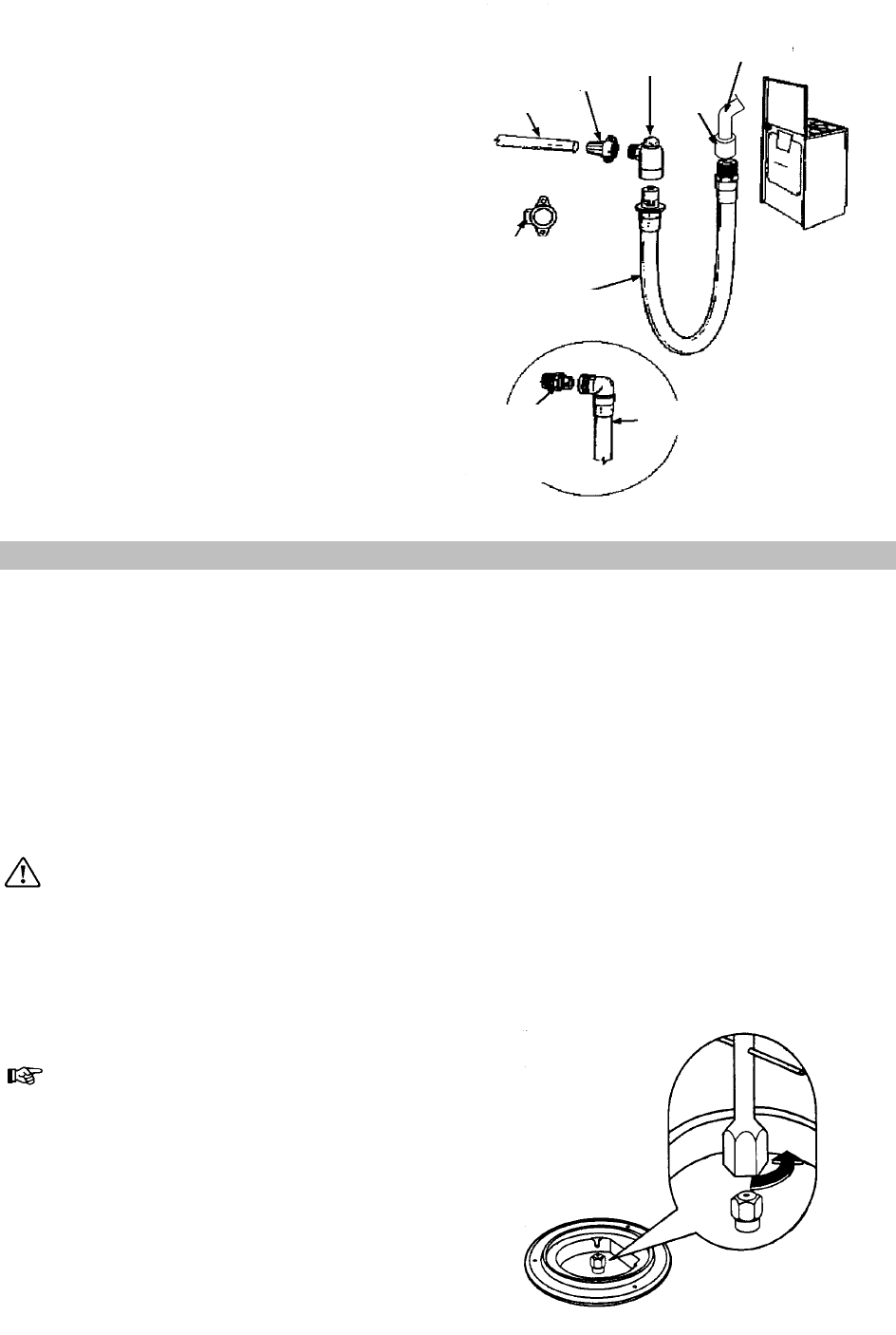
22
Connection shall be by means of an appliance
flexible connector for use with a self-sealing
plug-in device, complying with:
Flexible hoses, end fittings and sockets for
gas burning appliances – BS 669;
- The appliance flexible connector should not
be subjected to undue forces either in
normal use or whilst connected or
disconnected; The socket which the plug of
the appliance flexible connector fits should
be permanently attached to a firmly fixed
gas installation pipe and positioned such
that the appliance flexible connector hose
hangs freely downwards (see fig. 27);
- The appliance flexible connector should be
positioned such that it will not suffer
mechanical damage, e.g. abrasion from the
surrounding kitchen furniture, which may be
moved in use such as a drawer or door, or
by being trapped by any stability device.
The plug-in-connector should be accessible
for disconnection after moving the
appliance.
Straight bayonet
socket
incorporating
spring loaded
valve
Cooker hose with
bayonet fixing
Cooker hose with
bayonet fixing
Alternative
backplate
elbow
Copper pipe
Adaptor
backplate
Right angled
bayonet socket
incorporating
spring loaded
valve
Distribuitor
pipe
Female
elbow
CONVERSION OF GAS
Your cooker is designed to work with natural gas,
and is convertible for use with propane or butane.
The LPG conversion kit is available from your
Service Force Centre and must be fitted by a
Corgi Registered engineer.
For changing the gas type it is necessary to:
• replace the nozzles (hob, oven and grill);
• adjust the minimum level (hob and oven);
• adjust the primary air (oven and grill);
• check the gas connection;
Stick the label supplied with the
appliance (in the nozzles bag) corresponding
to the gas type utilised.
Replace the nozzles of the hob burners
Every appliance has spare nozzles for every type
of gas. The whole length of every nozzle is
marked in millimetres on the nozzle.
Hob burners
• Remove the pan support;
• Remove the caps and the burner crowns;
• Using a No 7 socket spanner unscrew the
nozzles and replace them with those required
for the type of gas in use (see table no. 1).
Reassemble the parts following the same
procedure in reverse.
These burners do not need any primary air
regulation.


















